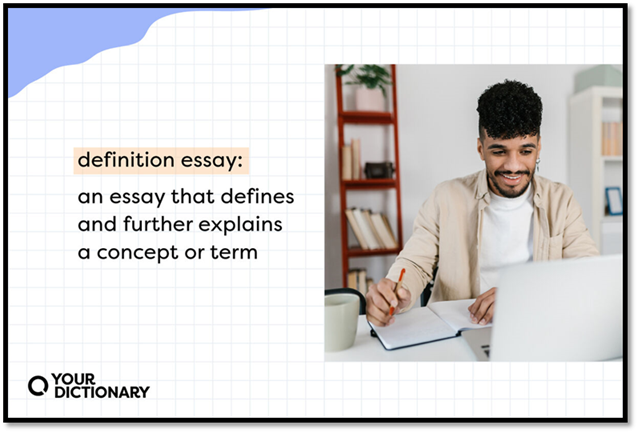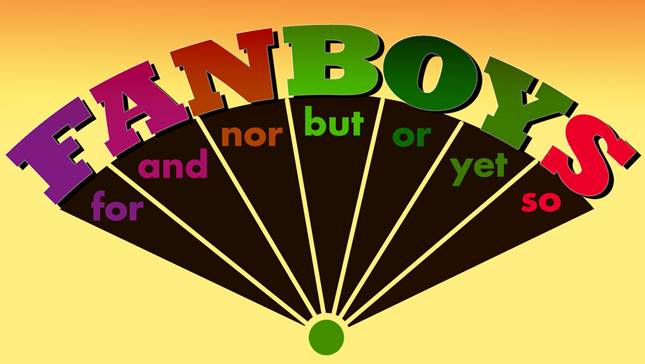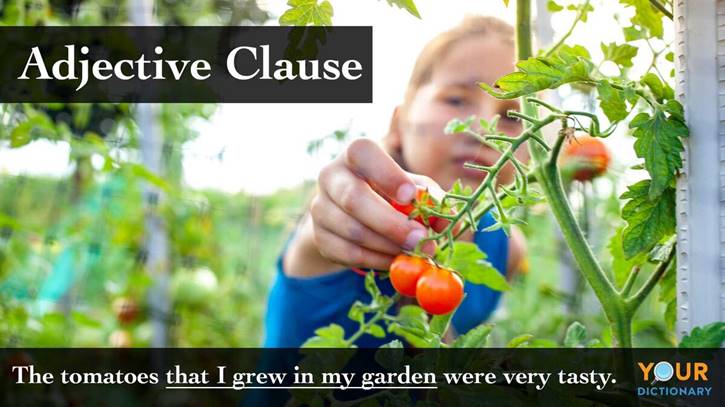Writing a Definition Paragraph
Unit Overview
By the end of the unit, you will develop the
skills to compose a concise and well-structured one-paragraph definition essay
by providing clear explanations, supporting facts, and relevant examples.
Additionally, you will gain proficiency in utilizing adjective clauses,
including subject and object adjective clauses, to accurately describe nouns
and enhance sentence complexity. You will also demonstrate the ability to
achieve variety by combining sentences with conjunctions, incorporating
adjectives and adjective clauses, and utilizing prepositional phrases. Lastly, you
will expand your vocabulary and effectively integrate new words and phrases
into your writing to ensure accuracy and expressiveness.
What is a Definition
Paragraph?
A definition paragraph serves the purpose
of defining a word, phrase, or concept. Its primary function is to explain and
understand the term being defined clearly. This type of paragraph often
includes examples to illustrate the definition further.

For
instance, one might use a definition paragraph to clarify the meaning of "gossip" by offering relevant
instances. Similarly, another definition paragraph could clarify the concept of
a "true friend" by
providing examples that enhance readers' comprehension.
Below is an example of a Definition Paragraph.
|
Gossip |
|
According to The Newbury House
Dictionary of American English, gossip is "talking or writing about
other people's actions or lives, sometimes untruthful." For example, if someone
sees a friend crying and then tells someone else that the friend is crying
and has emotional problems, this is gossip. At first, gossip might not seem bad.
One person tells a second person something private about someone else, and that second person tells
a third, and so on. The information passes from person to person. However,
gossip is much more than just information. The gossip can grow and change.
People often do not know all the facts. They may add something untrue, either
on purpose or not. As a
result, the person who is the subject of the gossip may be hurt. Because the
results range from
making the person feel bad to destroying
his or her career, gossip is much worse than "talk or
writing." (Cengage
Great Writing 116) |
A
definition paragraph:
·
explains
what something is
·
gives
facts, details, and examples to make the definition clear to readers
Below
is another example of a Definition Paragraph.
|
Gumbo |
|
The
Newbury House Dictionary of American English defines gumbo as "a
thick soup made with okra and meat, fish, or vegetables," but anyone who
has tasted this delicious dish knows that this definition is too simple to
describe gumbo accurately. It is true that gumbo is a thick soup, but it is
much more than that. Gumbo, which is one of the most popular of all Louisiana
dishes, can be made with many different kinds of ingredients. For example,
seafood gumbo usually contains shrimp and crab. Other kinds of gumbo can
include chicken, sausage, or turkey. All gumbo recipes use three other
important ingredients: okra, onions, and green peppers. Regardless of the
ingredients in gumbo, this dish from the southern part of Louisiana is one of
the most delicious regional foods in the United States. |
Prior to
writing a Definition Paragraph
·
Choose the term: Select a specific
term, concept, or idea you want to define. It should be clear and concise to
ensure a focused and effective definition paragraph.
·
Research the term: Gather information
about its meaning, usage, and any alternative or multiple meanings it may have.
Consult reliable sources such as dictionaries, textbooks, or credible online
references to understand comprehensively.
·
Determine the
background and history: Explore the term's origins, evolution, or historical
context. Understanding the background can provide valuable insights and enhance
the clarity of your definition.
Steps of Writing
a Definition Paragraph
·
Define the term: Craft a clear and
concise definition that captures the essence of the term. Consider using
precise language and providing context to ensure the reader grasps the meaning
accurately.
·
Provide supporting
details and examples: Offer additional information, explanations, or examples that
support and illustrate the definition. These details can help clarify any complexities
or nuances related to the term.
·
Conclude with a summary
or restatement: Wrap up the definition paragraph by summarizing the key
characteristics or restating the term in a concise manner. This conclusion
reinforces the understanding of the term and leaves a lasting impression on the
reader.
Let’s Practice
Citing Exact Words from a Source
When writing, the ideas and wording typically
originate from the author. However, there are instances where it becomes
necessary to borrow words from external sources like books or individuals. This
action of acknowledging or referencing a source is referred to as citing.
When a citation
involves directly quoting a source, it is essential to enclose the quoted
words within quotation marks ("...")
to indicate that they are not the author's original words. Moreover, any
commas, periods, or question marks that form part of the quote should be placed
inside the quotation marks.

Here are three approaches to incorporating a
direct quotation within a definition:
1. Introducing the definition with the source: According to
[Author], "quote."
2. Embedding the source within the definition: "Quote," as
defined by [Author].
3. Using the source as supporting evidence in the definition: The term
"quote," as [Author] suggests, refers to "quote."
Let’s Practice
Understanding Grammar: Adjective Clauses
An adjective
clause is a frequently employed method for crafting definitions. It serves
the purpose of describing a noun that precedes it. Within the realm of
adjective clauses, two primary types exist:
·
subject adjective clauses and
·
object adjective clauses.
Subjective
Adjective Clauses
Subject adjective clauses begin with a relative
pronoun (that, which, or who)
followed by a verb.
The relative pronoun is the subject of the
clause.
Use that or which for things. (That
is more common.)
·
Gumbo is a thick soup that contains seafood or meat.
o “soup that contains seafood or meat” is the subjective adjective clause
Use who or that for people
·
A goalie is a player who protects the team’s goal.
o “player who protects
the team’s goal” is the subjective adjective
clause
Object
Adjective Clauses
Object adjective clauses begin with a relative
pronoun (that, which, who, or whom) followed by a
subject and a verb.
The relative pronoun is the object of the verb
in the clause.
Use that or which for things.
·
Gumbo is a thick soup that people in Louisiana cook.
o “soup that people in
Louisiana cook” is an objective adjective
clause
Use whom or that for people.
·
A goalie is a player whom the coach selects.
o “player whom the coach
selects” is an objective adjective clause

Let’s Practice
Understanding Grammar: Sentence Variety
Many beginning writers use simple sentences with
a subject, a verb, and an object. You can improve your paragraphs
by using different kinds of sentences. Here are three ways to create sentence
variety.
Combining
Sentences with Conjunctions
For variety, combine two simple sentences with
a conjunction.
·
The scientist forgot to control the temperature. The experiment
was not successful.
·
The scientist forgot to control the temperature, so the experiment was not successful.

Combining
Sentences with Adjectives and Adjective Clauses
In addition to conjunction words, you can use adjective
and adjective clauses for variety.
·
The students liked the professor's suggestion.
·
Adjectives: The international students liked the
professor's creative suggestion.
·
Adjective Clauses: The students who study ESL liked the professor's
suggestion.

Combing
Sentences with Prepositional Phrases
You can use prepositional phrases for variety.
·
I did all the homework.
·
I did all the homework in
about three hours.

Let’s Practice
Building Better Vocabulary
Click
on the vocabulary words.